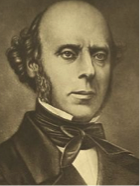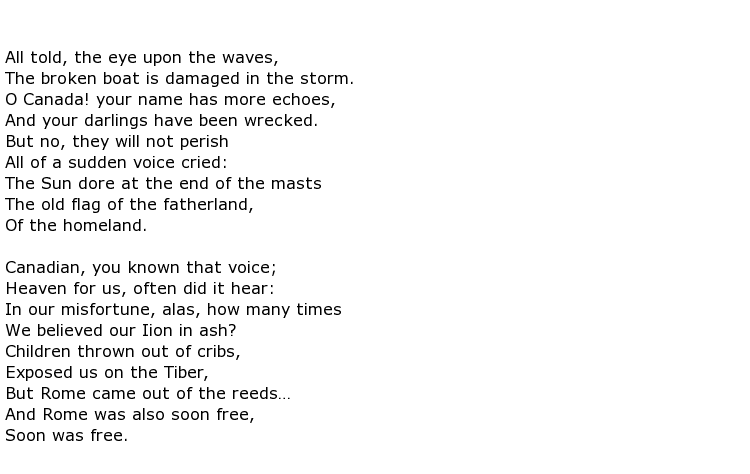 François-Xavier Garneau was a 19th century French Canadian writer of poetry and historical works. During the mid-1840s he produced a significant study of his country in three volumes called Histoire du Canada. Besides his literary work he was a trained notary and worked for the government in a number of posts including clerk of the legislative assembly.
François-Xavier Garneau was a 19th century French Canadian writer of poetry and historical works. During the mid-1840s he produced a significant study of his country in three volumes called Histoire du Canada. Besides his literary work he was a trained notary and worked for the government in a number of posts including clerk of the legislative assembly.
He was born on the 15th June 1809 in Quebec City. He was an able student at the Québec seminary but his family’s financial circumstances prevented him from taking up further education. His father was, himself, uneducated but François was determined to make his own way and studied the law, leading to his admission as a notary in 1830. He held civil service posts with the city council until his death in 1866.
He hoped to make his mark in literary circles as well and was successful in this venture. His talent as a writer meant that he was an active member of a number of historical and literary societies across Canada and the United States and he held the presidency of the Institut Canadien of Québec for a number of years. He was a fiercely loyal Canadian and was outspoken against the oppression of the English rulers. He was determined that his countrymen should be aware of the country’s origins and culture, hence his publication of what became known as “the accepted national history” of French Canadians. It was a clear message to the English that Canada was a country in its own right, not just a colonial region of North America.
As Garneau grew up he became known as a proudly independent Canadian with a deep and obvious love of the country in which he was born. The style of his writing was patriotic without being overly political and he remains, to this day, one of the major exponents of French Canadian literature. Although he was always interested in the political struggle of this fledgling nation, he never had ambitions to enter politics himself. He studied both English and French literature and a trip to the United States early in his working life encouraged him to nurture his own identity as a North American.
He further increased his knowledge of the French-Canadian place in the world when he lived in London for a two year period (1831-2), studying British politics at the same time. He was also able to visit Paris twice during this period. All of this encouraged him, on his return to Québec, to write poetry and he also produced a cultural magazine for a while. He was determined to encourage his fellow citizens to embrace their own national identity and he always wrote in French.
One of his most patriotic poems was Chanson Québec and the opening verses of this Song of Quebec are translated here:

Garneau set the tone for many other writers to follow over the next hundred years or so and this peace-loving, somewhat timid man entered Canadian literary history as a passionate lover of the Catholic church’s place in society. His legacy as a historian lives on in The François-Xavier Garneau Medal which was first awarded in 1980 by the Canadian Historical Association. The prize is now given every five years to the individual who is deemed to have made the most outstanding contribution to historical research.
François-Xavier Garneau died in early February 1866 at the age of 56.

